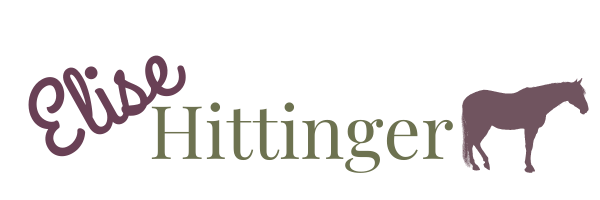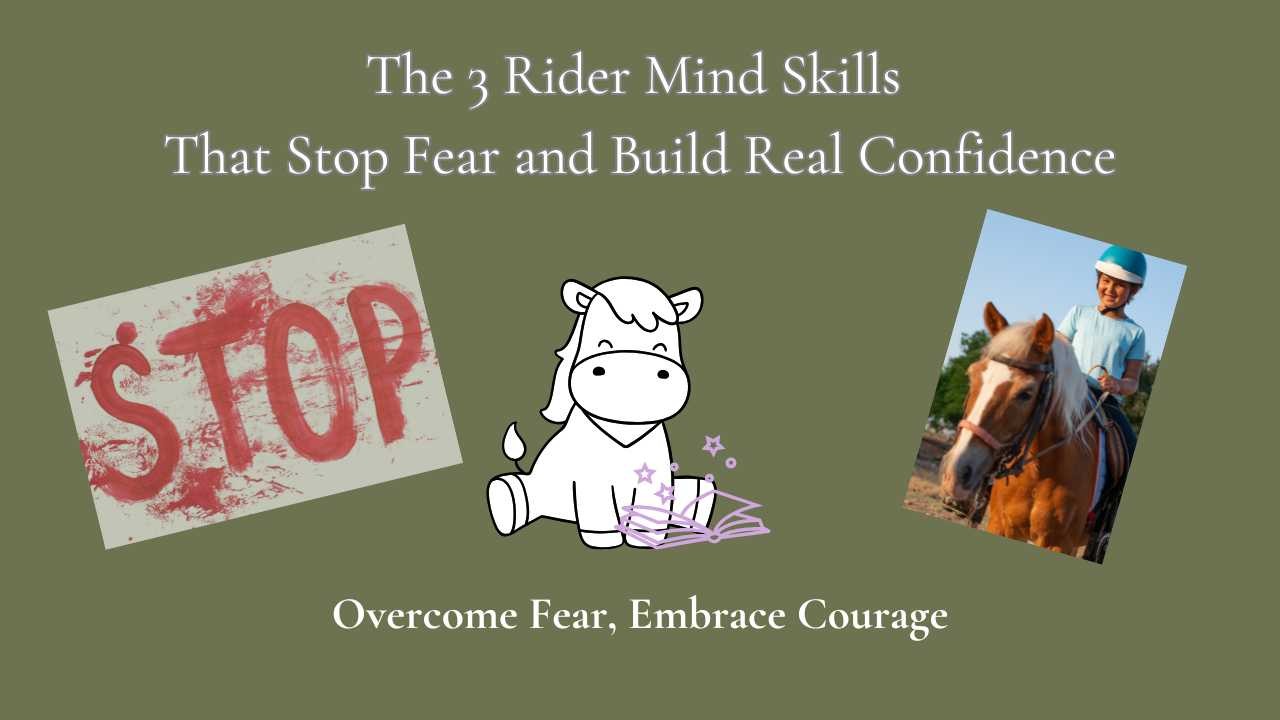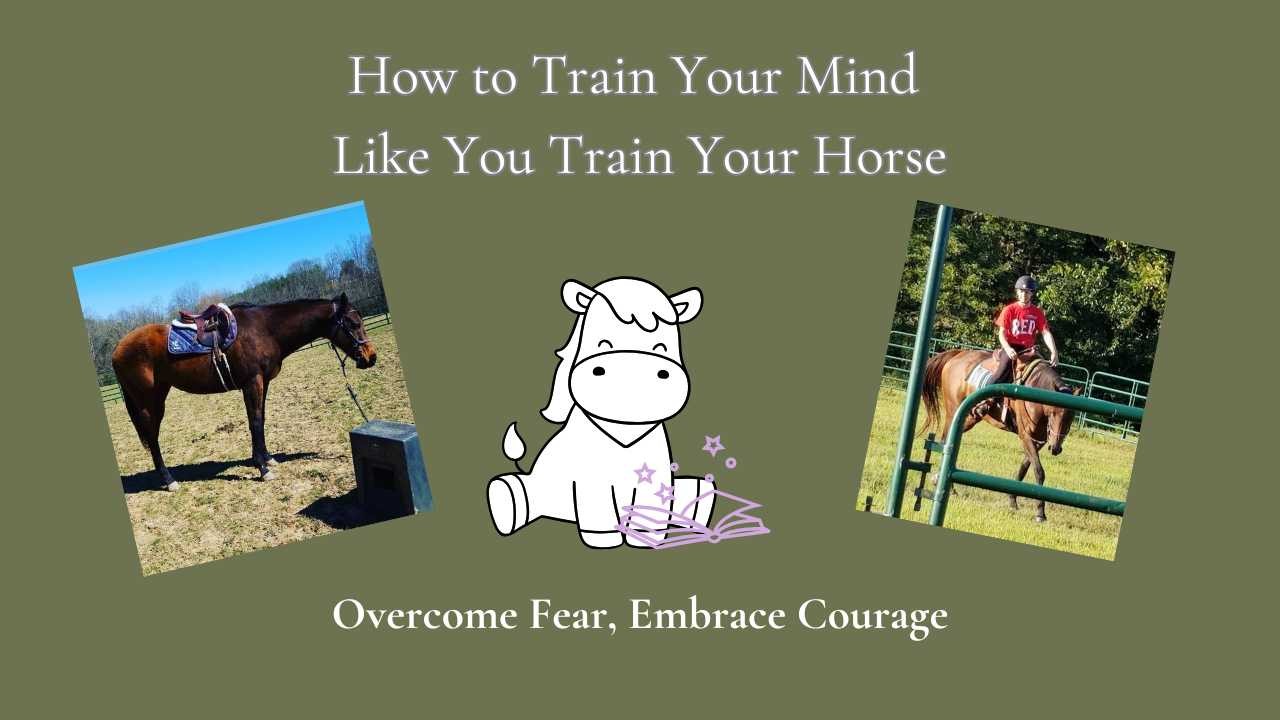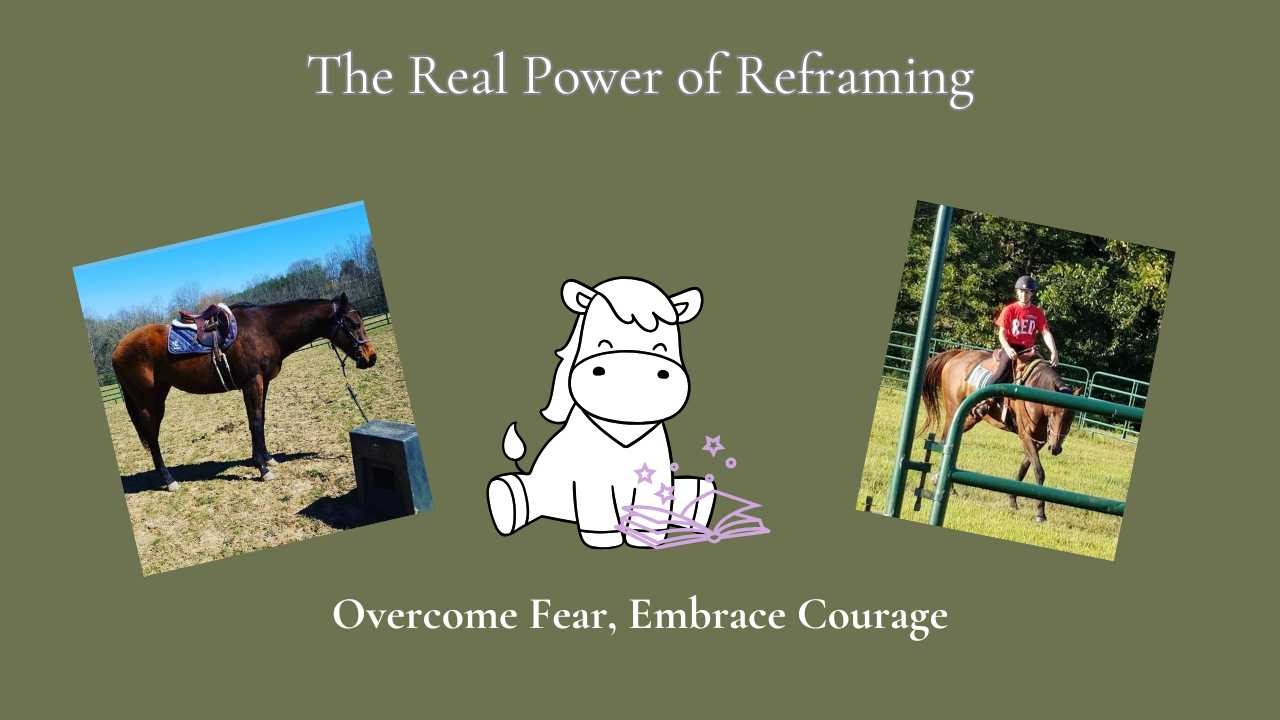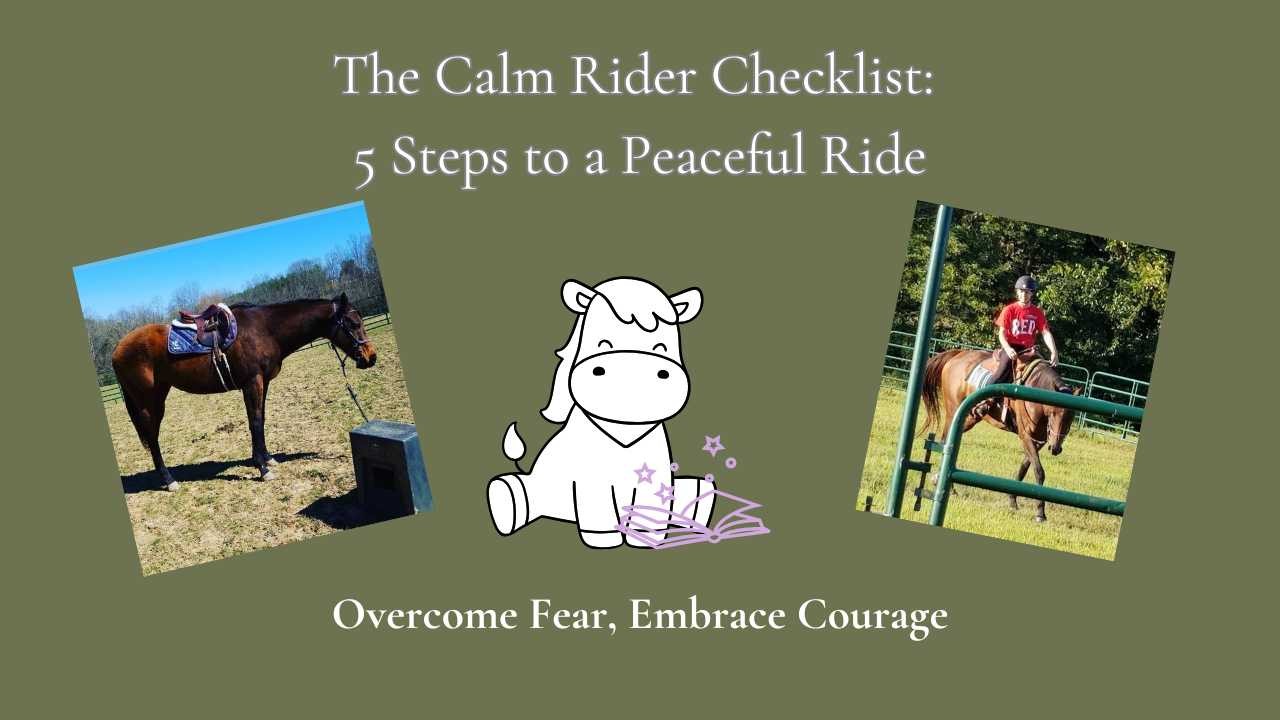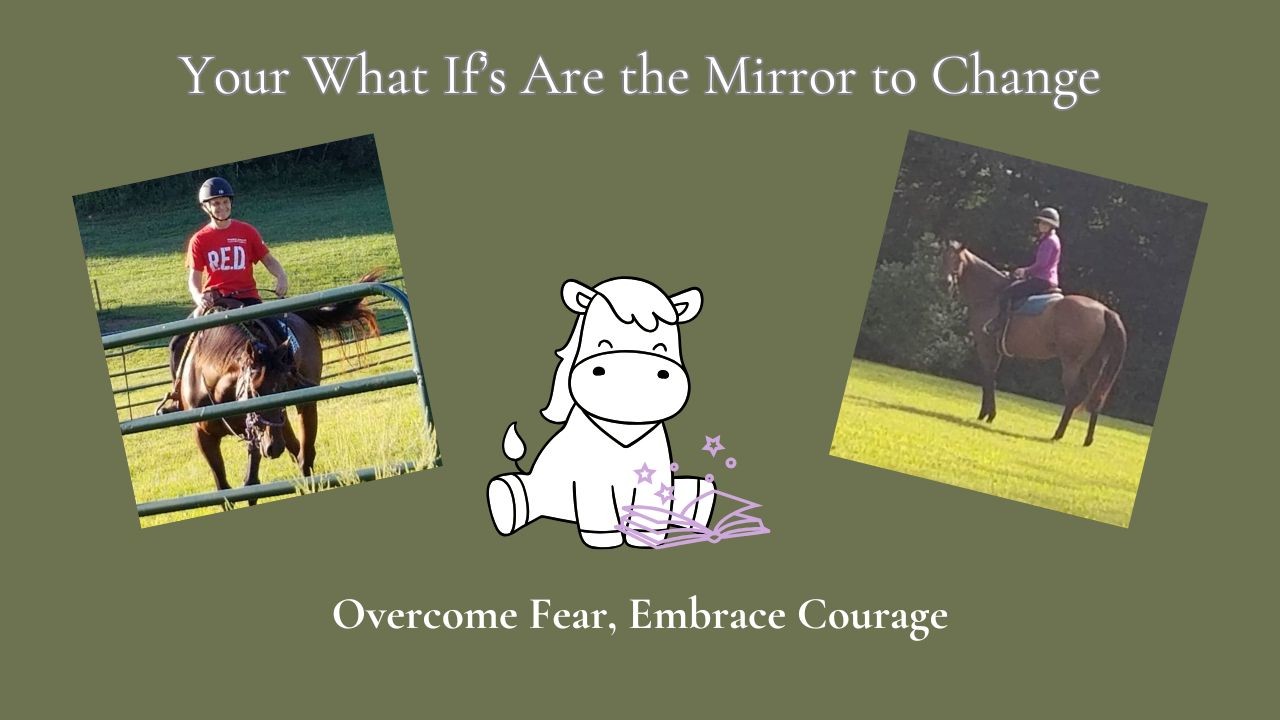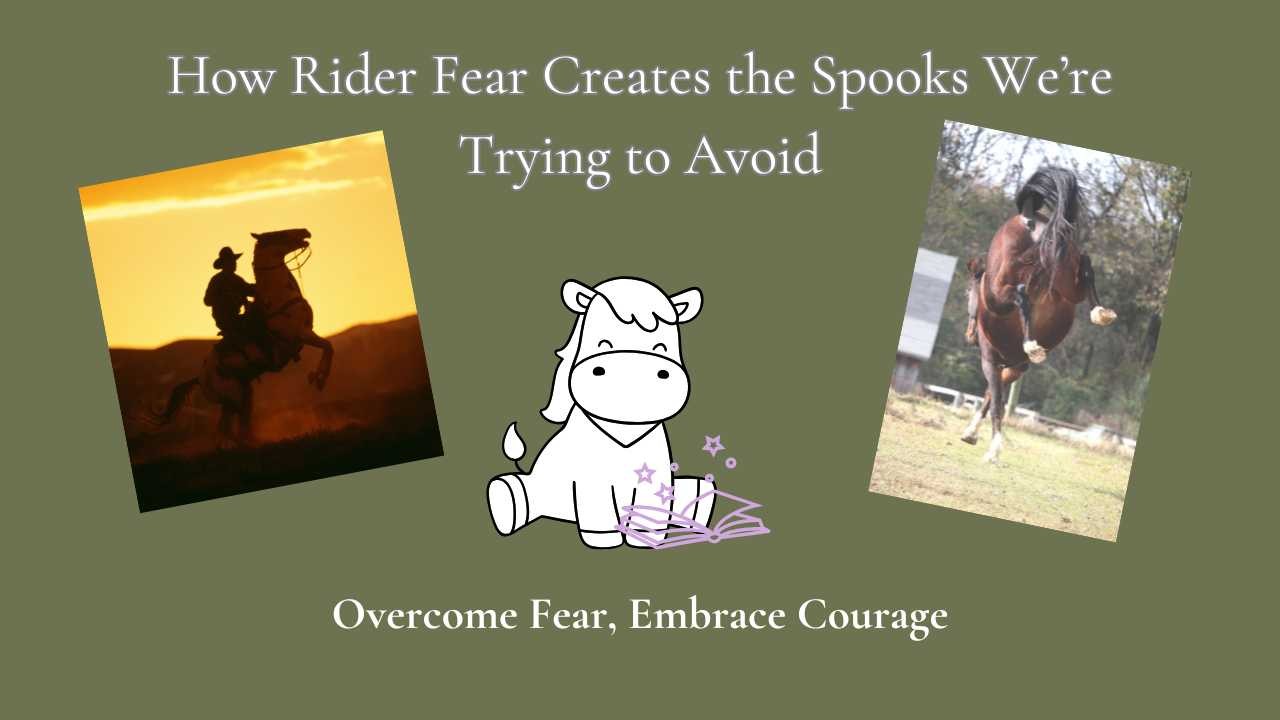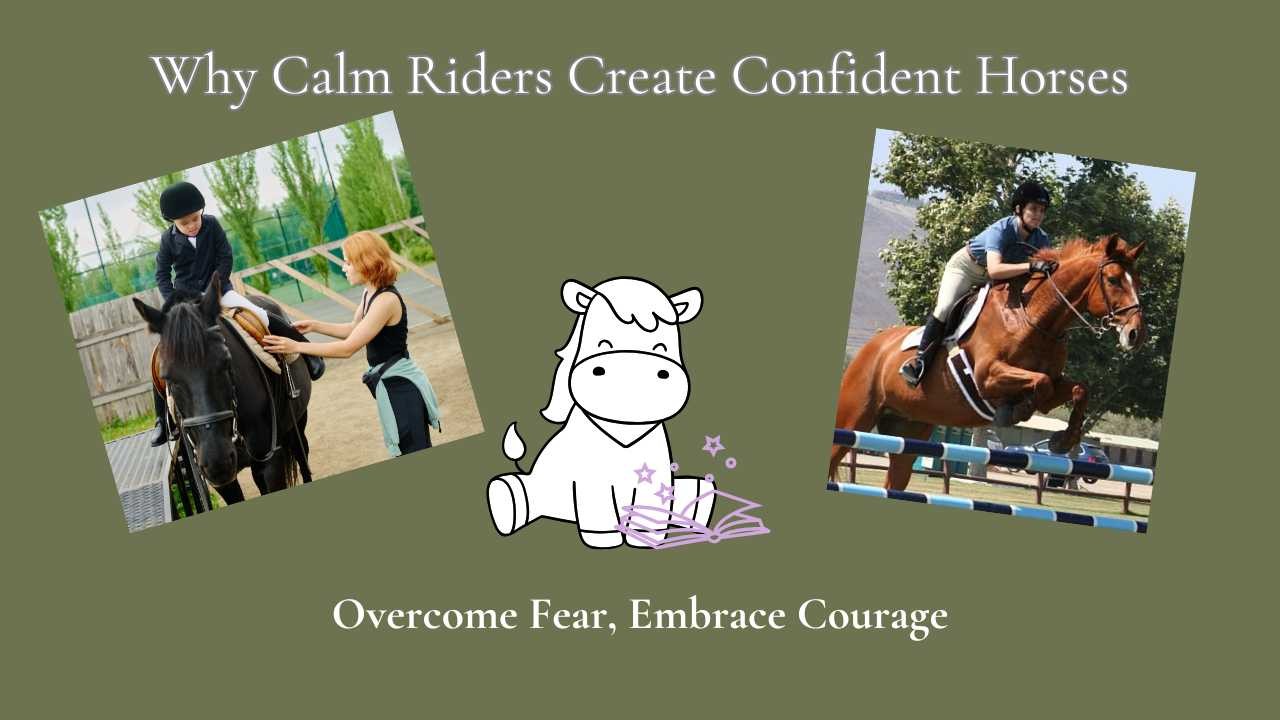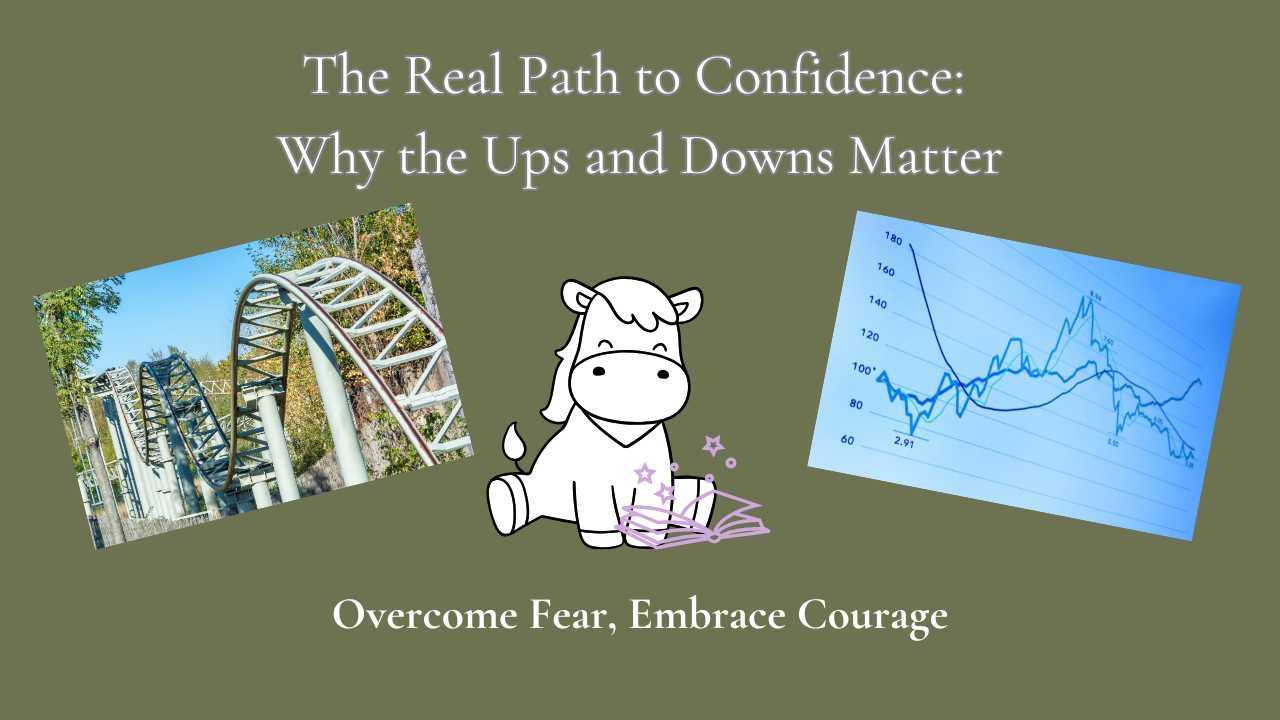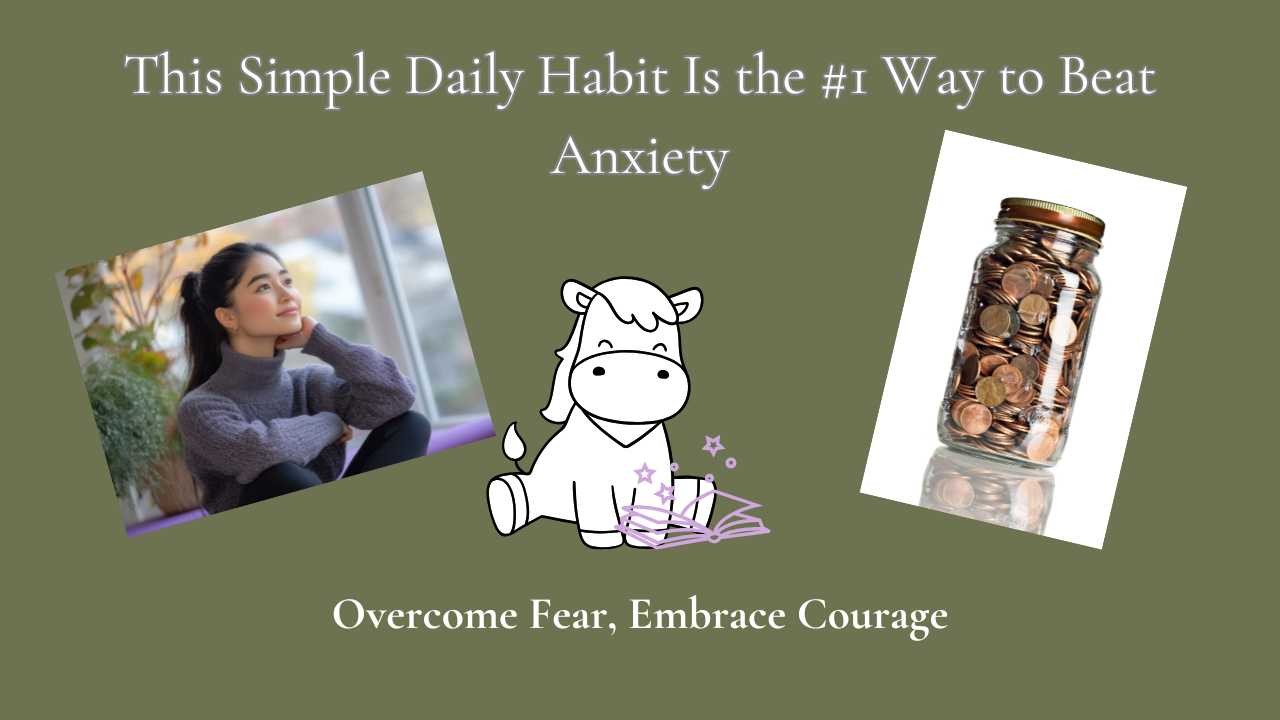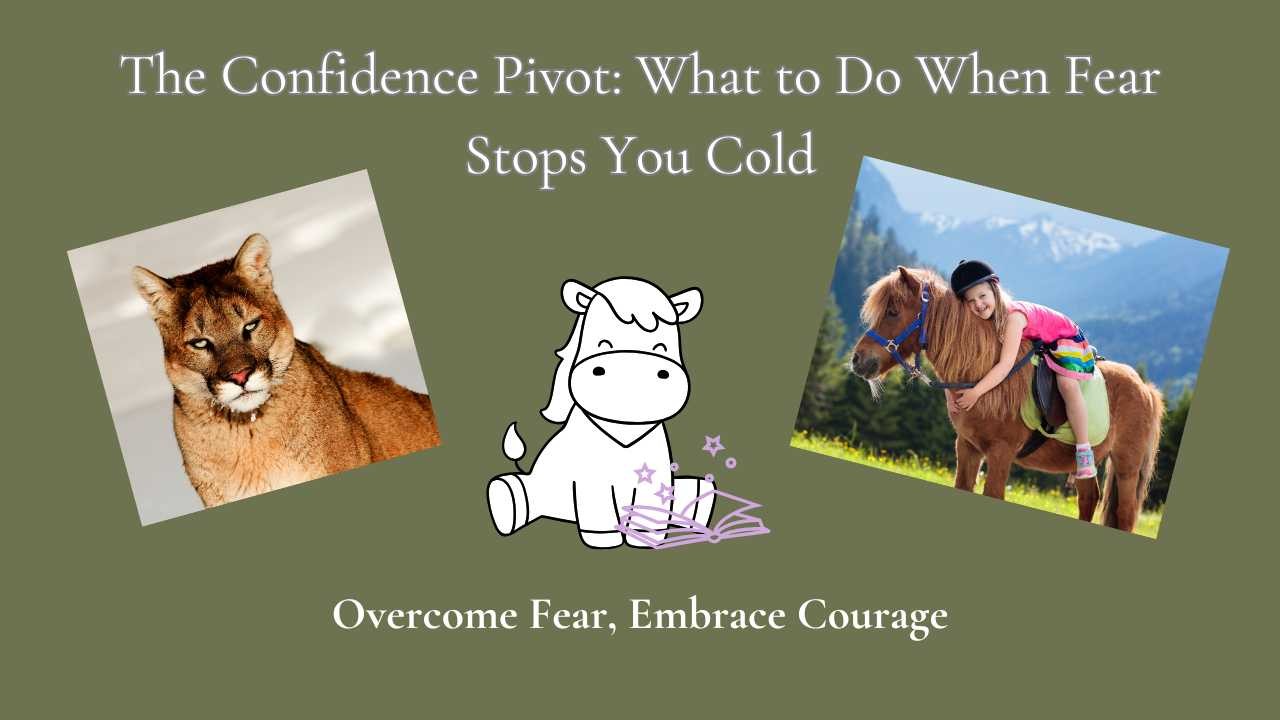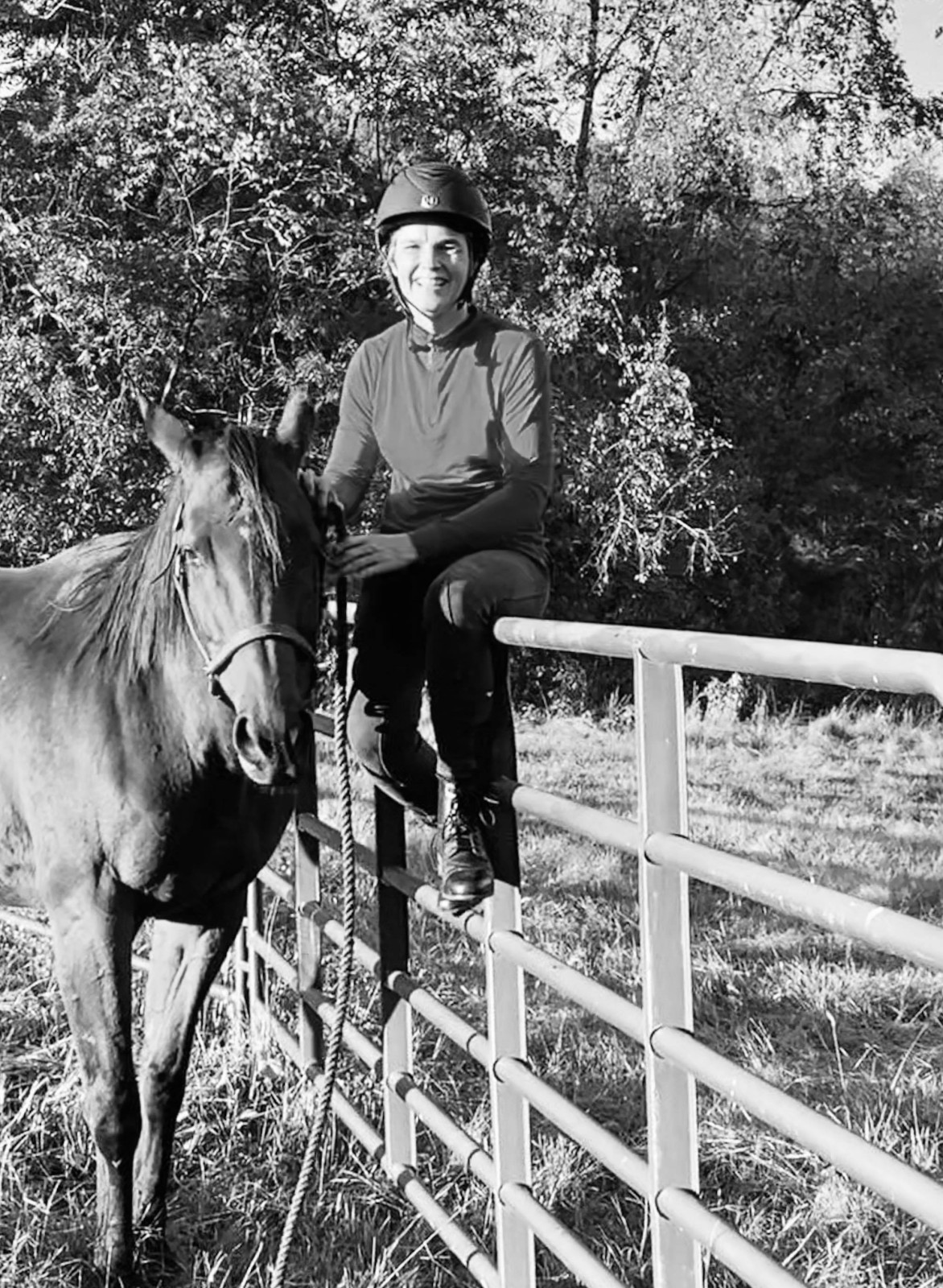
We were heading to a show, and one of the grooms went to load my horse into the trailer. I was busy getting all my tack together and not paying much attention. Then I heard a ruckus and looked up to see my horse heading back to his stall at a high rate of speed, dragging a lead rope.
I ran over and saw the groom getting up after being knocked down—thankfully, he was okay. The groom said, “I knew he was going to do that,” and this shocked me. I had never had an issue loading my horse before. He explained that the last three times, my horse had run him over when trying to load him, and he had expected it to happen again.
Was my horse reflecting the thoughts of the groom?
I’ll never know for sure, but what I do know is that when I went to load my horse myself, he walked right in with no issues at all.
Here are 3 fun ways to play with this:
1. Find some things to be really curious about around your horses.
- For example, find a flower and really get curious about all the nuances in its color. Look at how the petals are attached. Notice if they’re soft or stiff. Get really excited and engaged in this curiosity. Then, see if your horse wants to participate, mirroring your own curiosity. You might be surprised at how your horse picks up on your energy!
2. Play with your emotions around your horses.
- Tap into different emotions—laughter, love, even sadness—and notice how your horse responds to these emotional shifts. (Though, I’d recommend leaving out anger for safety reasons!) Playing with emotions allows you to see how your horse reacts to your energy, and it can lead to deeper connections with your horse.
3. Play with your intentions.
- Before spending time with your horse, set an intention for how you want things to go. Maybe you want a smooth and relaxed ride, or perhaps you want to improve your bond. See if you can guide your time together with this intention, allowing your horse to play an active role in shaping the experience. This is one of my favorite ways to interact with my horse—it feels like the horse has a voice and gets to help guide the moment.
Final thoughts:
Horses are incredibly sensitive to our thoughts, energy, and intentions. By playing with these different aspects, we can create stronger connections and more successful outcomes. The next time you're with your horse, have fun exploring how your curiosity, emotions, and intentions shape the experience—and let your horse guide you!
If you have enjoyed this, I have a guide for some more playing with your horses. 5 Energy Games!
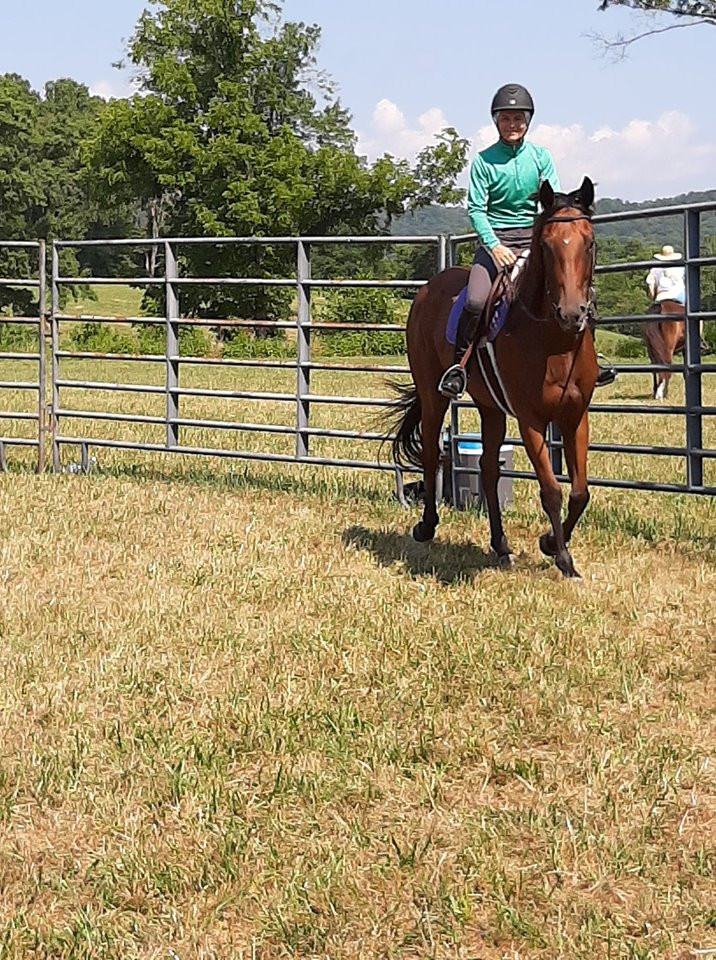
Stepping into the show ring, knowing I had a chance at winning the class, I immediately felt myself tense up, like a stiff board riding my horse—and he let me know it, too, as he stiffened in response. The fluid rhythm we shared in the warm-up ring quickly evaporated into the dirt.
There’s so much that happens in our brain that influences the success of our rides—or the lack of success—but almost always, it traces back to our thoughts and decisions.
As riders, we can become better brain riders!
1. Active Focus vs. Relaxed State
- Active Focus: In certain moments, we must be fully engaged mentally, making split-second decisions. responding to our horse’s movements or navigating obstacles. This requires active focus, consciously putting attention to specific cues and actions.
- Relaxed State: However, the magic often happens when we are just completely relaxed in the moment, where we are no longer consciously thinking about each movement but instead allow ourselves to follow the rhythm. This deep connection with the horse and the environment often leads to the most fluid, harmonious rides.
2. Trusting Muscle Memory
- Muscle Memory: For most of us, many aspects of riding become automatic, such as maintaining posture or applying leg aids. Thinking less can be beneficial because muscle memory takes over, allowing us to just enjoy the experience.
- Overthinking: On the other hand, overthinking can disrupt the flow and create tension. We start focusing too much on the little details of the ride, creating unnecessary tension in us and the horse.
3. Balancing Awareness with Relaxation
- Mental Awareness: While riding, maintaining mental awareness of our body, the horse, and the surroundings is crucial. This includes staying alert to potential hazards or adjusting for terrain changes. I love playing games while doing this!
- Relaxation: Staying relaxed is just as important. Overthinking every stride or trying to control every aspect, causes unnecessary tension, both in your body and the horse. Relaxation helps maintain a natural, smooth connection.
Our brain plays a pivotal role in our success or struggle in the saddle. By becoming aware of how our thoughts and mental states affect our rides, we can harness the power of focus, relaxation, and muscle memory to improve our performance and deepen our connection with our horses.
If you would like help fixing up your brain, let's have a chat and see if I can help! Schedule a chat with me!
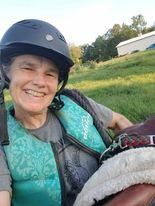
After my accident, it took a long time to regain the courage to ride the trails again.
As my courage grew, though, I noticed my motivation slipping away. I realized I had spent so much time focusing on my fear and anxiety that I had forgotten the pure joy of riding. The thrill, the connection with my horse, the freedom—it all seemed distant. The motivation just wasn’t there anymore.
When we bought our farm in Kentucky, it was a wake-up call. It was time to face my fear head-on and get my motivation back. I started rebuilding my courage by taking small steps each time I got on the horse—starting slow and building momentum. Motivation worked the same way—I just had to get out the door. That one step, no matter how small, made all the difference. It reminded me why I loved riding in the first place.
What about you? If you’ve lost your motivation, what’s the one thing you can do that will push you past that mental barrier and remind you how much you love riding?
Here are a few ideas:
1. Step outside—sometimes, just the act of stepping out the door is all it takes.
2. Get to the barn—being around the horses can reignite that spark.
3. Tack up the horse—when you’re in the routine, it can feel natural again.
4. Eat a snack that reminds you of riding—sometimes a familiar taste brings back great memories.
5. Put on your riding boots—there’s something about putting them on that can make you feel ready for anything.
If you've lost motivation, find that one thing that will reconnect you with the joy you once felt. Once you’ve started to remember that joy, you’ll be in the saddle, enjoying it all over again. Once you know what’s holding you back, make it a habit to push through that threshold every time.
There is a shortcut, the fast way. Find out how a hypnotherapy session can be the fast track to getting back your motivation! To see if this is right for you, Click Here!
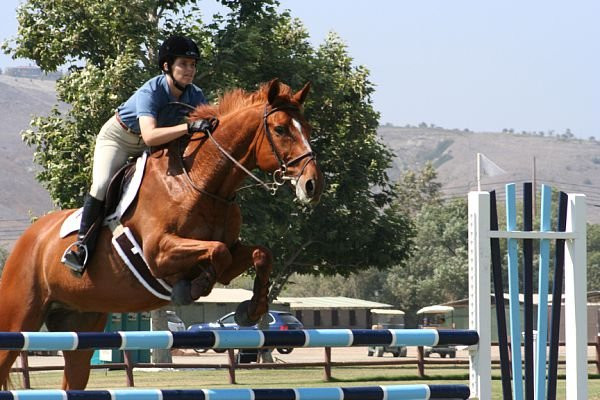
That first day I jumped 1.2M was exhilarating and terrifying.
We had a small jump leading up to the big one, and just looking at it made my stomach do flip-flops. My horse had jumped much bigger fences before, but this was a first for me. I remember all the thoughts racing through my mind: I could just get off and say I have a headache or feel nauseous. I knew my trainer would see right through it and make me do it anyway, so I kept those thoughts to myself.
I did jump the fence, and it felt like flying. I learned a lot about anxiety, fear, and doing it anyway. I also learned the importance of preparation. We’ve all done something spur-of-the-moment and realized we weren’t quite as ready as we should have been. Overcoming anxiety in the saddle is no different.
Here are three things you can do before you ever put your butt in the saddle:
1. Have the right equipment. I had a saddle that wasn’t built for jumping 1.2M fences, and it was clear I needed a new one. Proper equipment for your safety and comfort can significantly reduce anxiety.
2. Know your horse is ready. Is your horse calm while tacking up and at the mounting block? Are you calm? (If you’d like a copy of my pre-ride checklist for horse and rider, CLICK HERE!)
3. Have a plan for emergencies. Will you dismount or stay on? Are you prepared for a buck, rear, spook, or bolt? Know what you’ll do in each situation.
Here are four things you can do while riding:
1. Stay stable in the saddle. I love the 80/20 rule from Alicia Dickenson: 80% of your weight should be in the stirrup (like standing on the ground), with 20% in the rest of your legs and seat. Practice this as you ride.
2. Exhale. Exhaling helps release anxiety. Picture a Ferris wheel or waves at the beach as you breathe in and out. Holding your breath only increases tension, so focus on breathing through your anxiety.
3. Have a plan. Plans can change, but at least know what you want to do before you ride. The unknown can ramp up anxiety.
4. Focus 100 feet ahead. Don’t worry about what’s closer. Stay focused on where you're going so your horse knows the journey's direction.
If you would like to have some fun overcoming anxiety, saving up courage pennies is a fun way to do it. You can get my free eBook, The Ultimate Guide to Courage Pennies!
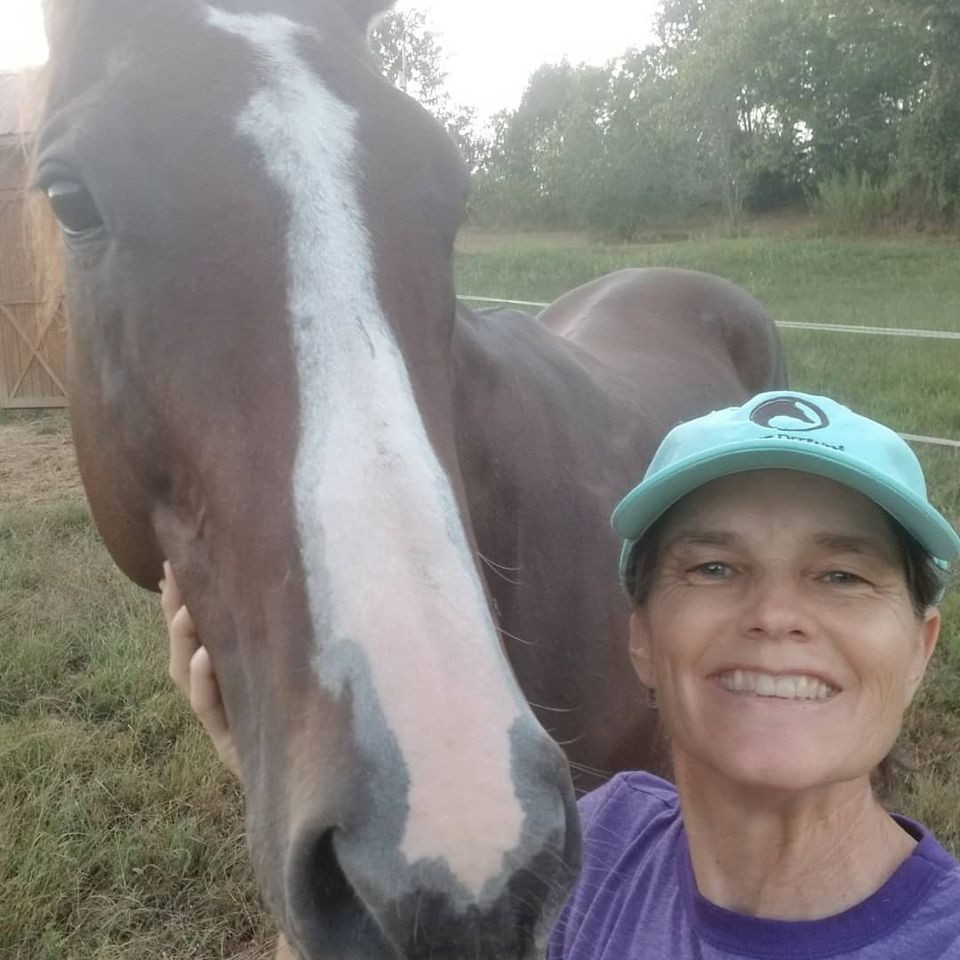
It may sound a little crazy, but it’s possible to enjoy anxiety—or at least embrace it as part of you.
I recently worked with a young lady who was terrified of her anxiety. She thought it needed to be fixed, but together we realized her anxiety was part of who she was—and she could use it for good. It didn’t happen overnight, but we worked through it, and one of our key conversations was about this: As long as we have to deal with anxiety, we might as well enjoy it.
When I first started trying this with horses, I was surprised by how much easier it got. The more I allowed myself to embrace the anxiety, the more it seemed to fade. Joy slowly began to replace fear, a little at a time.
Here’s the best advice I’ve learned:
1. Feel Grateful for Your Anxiety.
- I know it sounds strange, but try to feel grateful for your anxiety. It’s there to protect you. When you appreciate its role in keeping you safe, it loses some of its power. The more you can feel joy and gratitude for how anxiety has served you, the quicker it will retreat.
2. Look for the Lesson in the Anxiety.
- Anxiety often arises from uncertainty, but it can also be a sign that you’re growing. Instead of viewing it as a threat, ask yourself: What is this teaching me? Maybe it’s prompting you to slow down, take action, or trust yourself. Reframing anxiety as a guide rather than an enemy shifts your relationship with it.
3. Practice Micro-Moments of Calm.
- You don’t have to erase anxiety all at once. Focus on finding small moments of calm during anxious episodes. Whether it’s a few deep breaths, feeling the ground beneath you, or simply being present, these “micro-moments” can help reset your nervous system and break the cycle of anxiety.
4. Redirect Your Focus to the Present.
- Anxiety thrives on worry about the future. Instead of spiraling, bring your focus back to the present. Engage in something you enjoy—whether it’s spending time with your horse, walking outside, or simply breathing deeply. By grounding yourself in the now, you take away anxiety’s grip on you.
Embracing anxiety isn’t about eliminating it—it’s about accepting it as part of your journey. Over time, the more you embrace it, the less power it holds. With patience, you can learn to use anxiety as a tool for growth, calm, and peace.
If you are wanting to enjoy your anxiety a little bit more, we can also do a Hypnotherapy session to reset to a clean slate and make that joy come even faster! Set up a chat to see if this would be a good fit for you! Book a Time to Chat!
